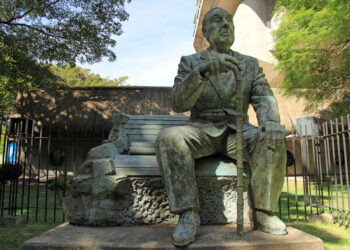Two of our favorite topics, alphabets and AI, have come together in a recently published paper in Nature Communications. “Contextual and combinatorial structure in sperm whale vocalisations” represents the identification of an “alphabet” of the sounds sperm whales use to communicate. Recordings of 8,719 sperm whale “codas” from 2005 to 2018 were analyzed by researchers using AI to identify and classify patterns. Interestingly, the researchers chose not to approach things through training an LLM on the whale sounds, but rather opted for algorithms to perform a more classical statistical analysis. As one researcher notes, the problems with LLM approaches is that they become something of a “black box” and much more complex.
The results are some 143 unique combinations of sound forming a sperm whale alphabet that the researchers hope to further decipher. A short news report below explains the project. We at The Scholarly Kitchen are looking forward to our future post announcing the first paper authored by an ocean-dwelling mammal.



